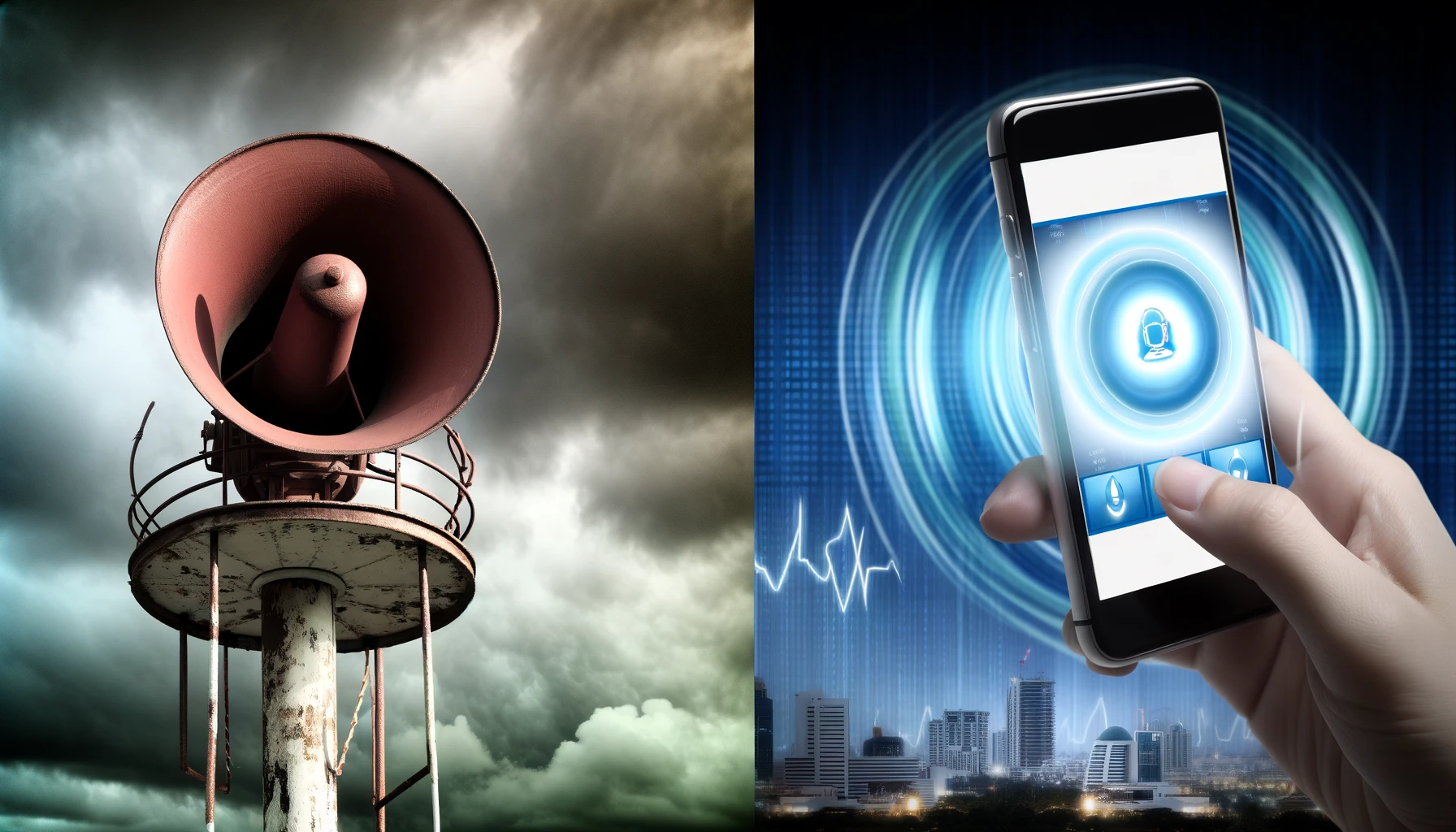While sirens are blaring every day in Ukraine and Israel, our caretaker cabinet is about to cut the Dutch civil defense sirens that were introduced shortly after World War II to warn the population during dangerous situations. This decision, presented last Friday by the cabinet as a “significant” cost saving, will save per resident €0.75 per month. Other arguments, based on the existence of NL-Alert, do not hold up under closer scrutiny and point to a short-sighted form of thrift that compromises our safety.
First, NL-Alert on mobile phones is said to have a longer range than the air alert. This is a theory that assumes every resident, including children and the elderly, has a charged phone and keeps it next to them and switched on day and night. However, many people choose to switch off their mobile phone at night or not put it on their bedside table. This is wise, as not using the phone at night improves sleep quality. The government should also encourage turning off and putting away smartphones because it improves the health and productivity of the population and leads to significant cost savings and higher tax revenues through lower absenteeism and less healthcare consumption. But if the sirens are abolished, ironically, the government will actually have to start advising people to always leave their phones on the nightstand at night because otherwise they will not get an alert in case of emergency.
The government also assumes that the digital NL-Alert is a reliable alternative to the analogue air alert. But while the modernised air alert 30 years ago can go a week without power, NL-Alert’s batteries are dead after only 30 to 120 minutes. NL-Alert can also be hacked remotely much more easily and is much more sensitive to malfunctions. So despite theoretically being able to reach slightly more people, NL-Alert can more easily let us down in the most serious emergencies, reaching no one at all.According to the government, another advantage is that NL-Alert can also relay information. However, anyone who has ever received an NL-Alert knows that in practice, this information is not very useful, let alone understandable for the 2.5 million low-literate and non-native speakers, and is therefore no substitute for other information channels. Moreover, direct information provision via NL-Alert can also pose a danger in situations of national security, such as war. Enemy parties can, thanks to NL-Alert, ‘inform’ the entire population at the push of a button with instructions intended to endanger the population. That risk is less present when the air alert and multiple available information channels are disconnected.
This shows that, contrary to what the government claims, abolishing the air alarm is not a good idea at all, but a short-sighted form of frugality that unnecessarily compromises our safety. It is not for nothing that the government in Ukraine and Israel, despite the availability of similar technologies, continues to rely on sirens to alert citizens which, according to experience experts from those countries, are also 30 to 60 seconds faster than their digital counterparts-a not to be underestimated advantage when every second counts.
The only real benefit left then is the ‘significant’ cost saving of €0.75 per month per resident. Despite the fact that every little helps, it is misleading to sell such a marginal saving for such an essential security infrastructure as a ‘significant’ cost saving, an amount that, moreover, is based on maintaining a nearly 30-year-old system, which may also need replacing at some point. An added benefit of replacing rather than abolishing is even better range and longer battery life that NL-Alert developers can only dream of, and lower maintenance costs.
Thus, by abolishing the air alert we built up after World War II, we hardly save any money, but introduce major dangers whose consequences we cannot foresee until it is too late. We should therefore ask ourselves whether the marginal savings from which we cannot even buy a cup of tea a month are worth risking our collective security, or whether for that amount we would be better off choosing prudence and the safety of a robust warning system.
This article appeared today in De Volkskrant.

Leave a Reply